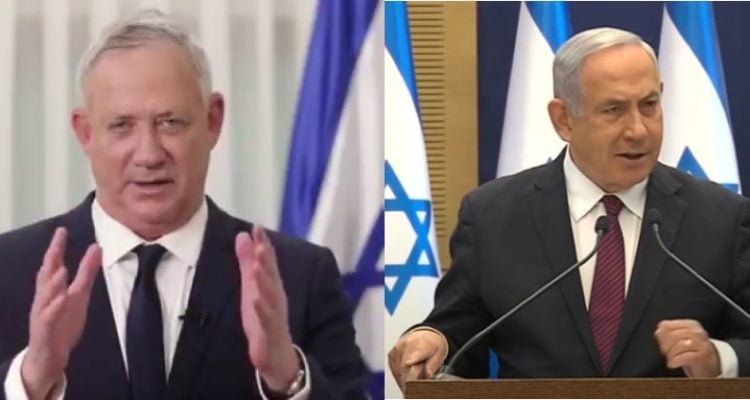The Knesset opted to dissolve itself in its first round of voting, but whether there will actually be elections or a compromise remains to be seen. Here are the possible scenarios.
By Paul Shindman, World Israel News
Israelis woke up Thursday to political uncertainty following the Knesset vote to dissolve the house, which appears to be paving the way to the country’s fourth national election in the past two years.
Prime Minister Benjamin Netanyahu’s national unity government lost the vote when his coalition partner, Defense Minister Benny Gantz and his Blue and White Party, voted against the government and chose to end the parliamentary session – the first step towards elections.
Gantz demanded Netanyahu present a 2021 national budget or the country would go to elections. Following the vote, Netanyahu called on Gantz to take back the move, stating the country needed unity to combat the pandemic, but did not mention the budget at all.
So what happens now?
Israel’s democratic infrastructure has its own peculiarities and nuances, with the country facing some uncertainty as to which path the politicians will take.
The legislation to dissolve the Knesset only passed its first of three votes on Wednesday. The next step is the Knesset House Committee will convene Monday to discuss the bill to make changes to it, and sometime next week the committee will send it back to the plenum for the required debate, along with mandatory second and third votes, at which time if approved it will become law.
There are several scenarios and options the Knesset’s 120 members face in choosing either the date for new elections, or deciding not to go to elections at all.
The first possible scenario is that Netanyahu and Gantz will reach an agreement on the 2021 national budget.
Should that happen, the Blue and White Party would vote with Netanyahu on the second or third reading of the bill in the Knesset, the bill would be defeated and the Knesset session will continue as normal.
The second scenario would involve dissolving the Knesset, if the law is approved by the Knesset committee, and the plenum votes to approve it in the second and third readings. In this case, the election date has already been set by law to be no later than five months from the time the law is passed. This would put the elections sometime between mid-March to mid-June.
Scenario three, which may be more likely at the moment, is that the committee does not send the legislation back to the house for debate and the Knesset continues until the date on which the state budget must be passed by law, December 23.
If no budget is passed by then, the Knesset is automatically dissolved and the the election date is specifically set to be the last Tuesday in three months from the moment of dispersal, in this case March 23, 2020.
This last scenario has a twist, because the national unity government has still not passed the 2020 budget, having repeatedly voted to delay it. As bizarre as it seems, with only a few weeks left in the year the Knesset could vote to pass only the 2020 budget, and postpone the 2021 budget until some time in the new year.
If that happens, either the 2021 budget will be approved early in 2021, or the political crisis will repeat itself, but with Netanyahu able to set a date for elections more to his liking, Kan News commented.
One final factor is whether or not the Central Elections Committee (CEC) would be able to prepare the necessary logistics in time for quick elections. If the CEC needs more time beyond the potential March 23 date, the election will likely only take place in May. This is because the eight-day Passover holiday is only five days after the election date, and is followed by Israel’s national remembrance and independence days.




